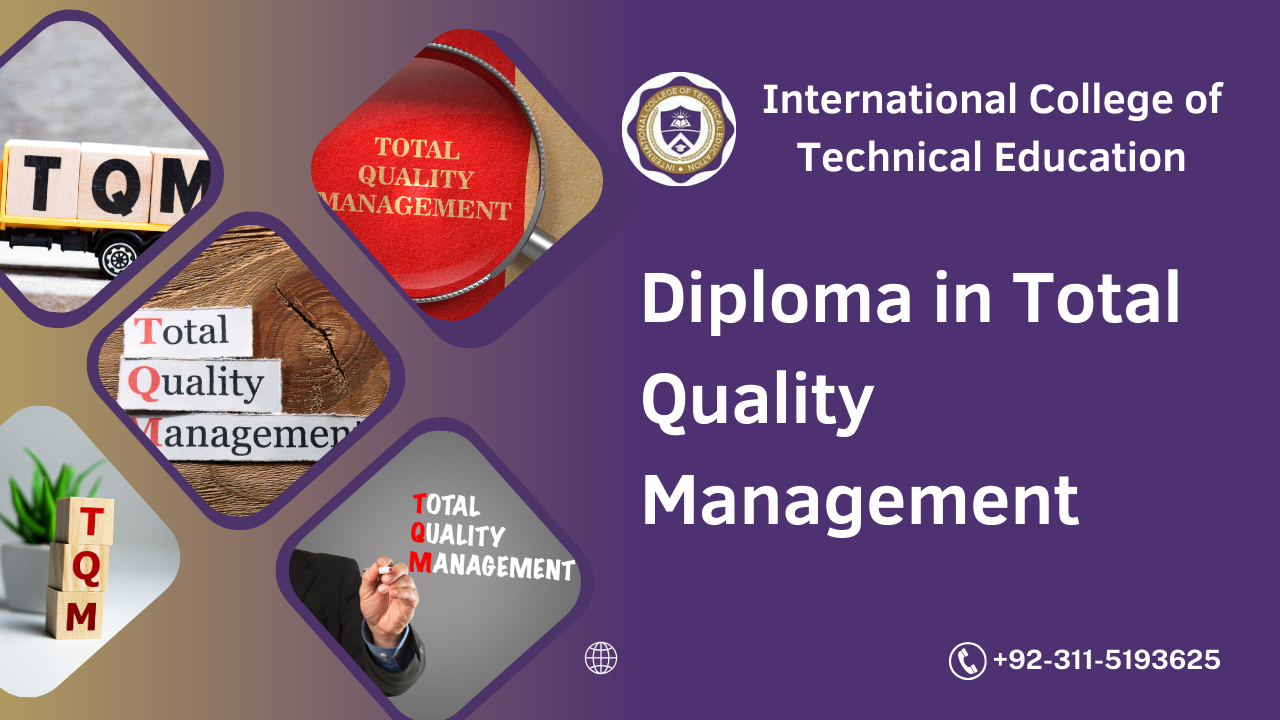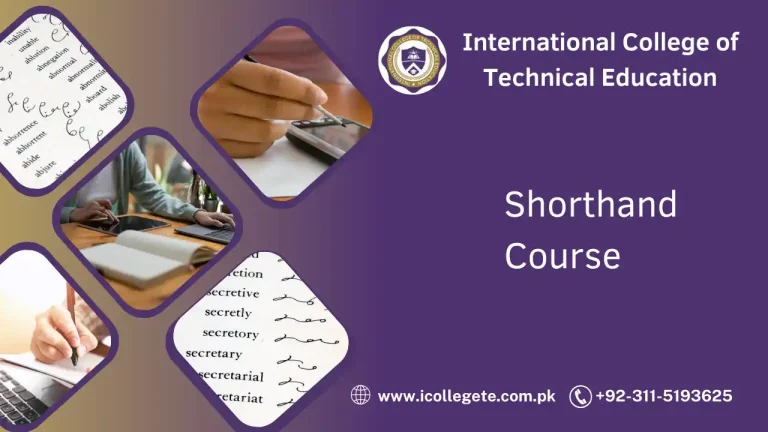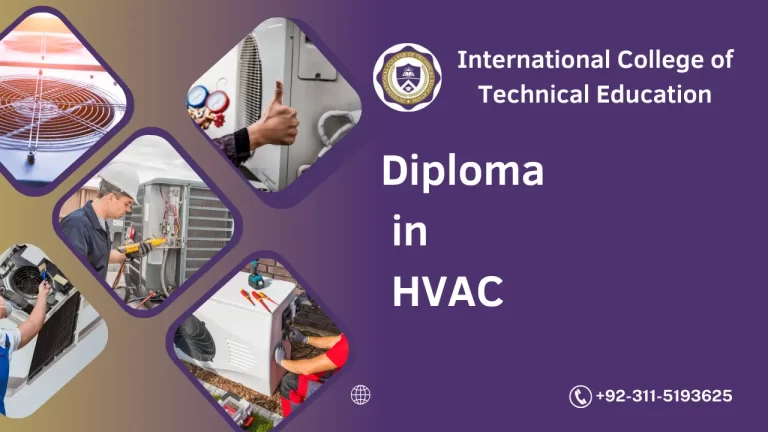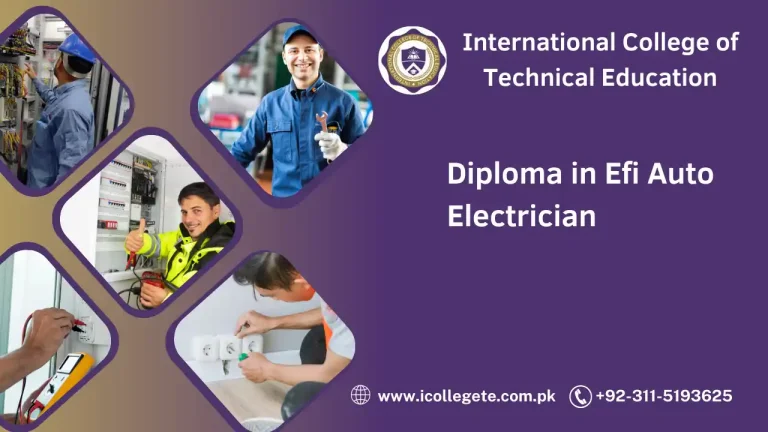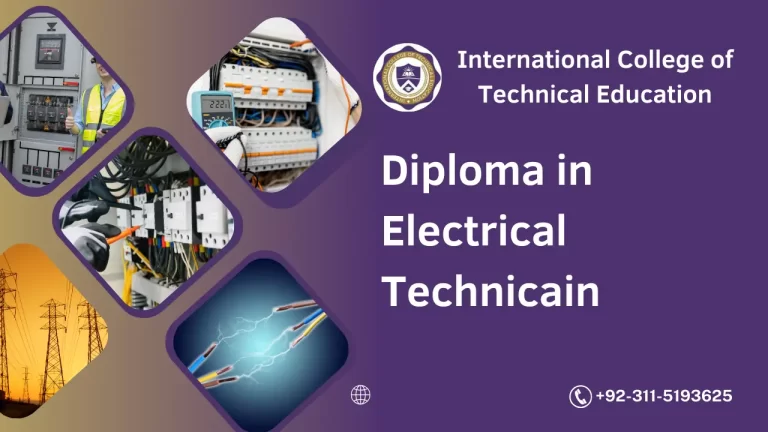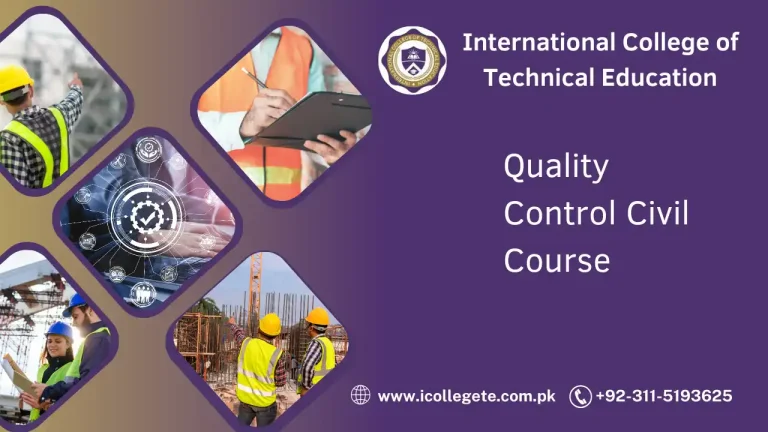In today’s competitive business landscape, organizations must consistently deliver high-quality products and services to remain relevant and successful. Total Quality Management (TQM) is a strategic approach that focuses on long-term success through customer satisfaction, involving every employee at every level of an organization. The Total Quality Management (TQM) course in Rawalpindi is designed to equip professionals with the knowledge and tools required to implement quality management principles and foster continuous improvement across an organization.
The Total Quality Management (TQM) course in Rawalpindi offers an in-depth exploration of the principles, practices, and tools used to manage and enhance quality in business processes. TQM emphasizes a holistic approach to improving organizational efficiency, customer satisfaction, and employee engagement. This course is tailored for individuals aiming to lead quality initiatives, ensure high standards, and create a culture of continuous improvement within their organizations.
Throughout the course, participants will gain practical insights into various quality management frameworks, problem-solving tools, and how to measure performance effectively. By the end of the program, you will have the skills to implement TQM strategies that drive organizational success and contribute to maintaining competitive advantage.
Course Overview
The Total Quality Management course in Rawalpindi covers all key aspects of TQM, including quality control, quality assurance, process optimization, and continuous improvement. The course integrates industry best practices and modern quality management methodologies to help participants enhance their understanding of how quality is integrated into every stage of production, service delivery, and business processes.
Key topics covered include:
- Introduction to Total Quality Management: Overview of TQM principles, concepts, and its significance in modern businesses.
- Quality Improvement Tools: Techniques like Six Sigma, Kaizen, PDCA, and Pareto analysis for identifying and solving quality problems.
- Customer Focus and Satisfaction: Understanding customer needs and integrating feedback into quality improvement processes.
- Leadership in Quality Management: The role of leadership in promoting and sustaining a quality-driven culture within an organization.
- Process Management: Analyzing and optimizing business processes to ensure consistent quality outcomes.
- Performance Measurement and Metrics: Using data and key performance indicators (KPIs) to monitor, evaluate, and improve quality standards.
- Employee Involvement: Engaging employees at all levels to contribute to quality initiatives and continuous improvement.
Learning Outcomes
Upon completing the Total Quality Management course in Rawalpindi, participants will be able to:
- Implement TQM Principles: Apply the key principles of TQM in real-world scenarios to improve quality across business processes.
- Use Quality Improvement Tools: Master tools like PDCA (Plan-Do-Check-Act), Six Sigma, Kaizen, and others to identify and resolve quality issues.
- Enhance Customer Satisfaction: Develop strategies to identify customer requirements and align organizational processes to meet these expectations.
- Drive Continuous Improvement: Foster a culture of continuous improvement by using data-driven approaches to assess and enhance performance.
- Measure and Monitor Performance: Utilize metrics and performance indicators to track progress and ensure consistent quality outcomes.
- Engage and Empower Employees: Encourage employee participation in quality initiatives, ensuring a collective focus on organizational excellence.
Study Units
The TQM course is divided into several modules, each focusing on a specific area of Total Quality Management. These units include:
- Unit 1: Introduction to Total Quality Management
- Definition and history of TQM
- Key principles of TQM (customer focus, continuous improvement, etc.)
- Benefits and challenges of implementing TQM
- Unit 2: Quality Improvement Tools and Techniques
- Tools like Six Sigma, PDCA, and Pareto analysis
- Techniques for root cause analysis and problem-solving
- Unit 3: Customer Focus and Satisfaction
- Understanding customer expectations and feedback
- Building processes that prioritize customer satisfaction
- Unit 4: Leadership and TQM
- Role of leadership in driving quality culture
- Strategies for leadership engagement in quality management
- Unit 5: Process Management and Optimization
- Process mapping and analysis
- Optimizing processes to achieve higher efficiency and quality
- Unit 6: Performance Measurement and Metrics
- Key performance indicators (KPIs) in TQM
- Using data and metrics to assess and improve quality
- Unit 7: Employee Involvement and Empowerment
- Engaging employees in quality initiatives
- Building a culture of collaboration and continuous improvement
- Unit 8: Implementing TQM in Organizations
- Steps to implement TQM across different departments
- Overcoming common obstacles in TQM implementation
Course Benefits
Enrolling in the Total Quality Management course in Rawalpindi provides numerous advantages for both individuals and organizations. Some key benefits include:
- Enhanced Career Prospects: With TQM skills in high demand, you will be better positioned for career advancement in roles such as quality manager, operations manager, process improvement specialist, and more.
- Improved Organizational Efficiency: Implementing TQM practices can help organizations reduce waste, improve productivity, and increase profitability by focusing on quality and continuous improvement.
- Increased Customer Satisfaction: TQM emphasizes customer focus, ensuring that products and services meet or exceed customer expectations, leading to higher customer loyalty and retention.
- Reduced Operational Costs: By focusing on quality improvements and process optimization, organizations can reduce errors, defects, and inefficiencies, ultimately saving costs.
- Competitive Advantage: Organizations that successfully implement TQM practices are better positioned to compete in their industries by providing consistent, high-quality products and services.
- Employee Engagement: TQM fosters a collaborative work environment, where employees are actively involved in improving quality, leading to better morale and productivity.
Who is This Course For?
The Total Quality Management course in Rawalpindi is ideal for a wide range of professionals seeking to enhance their knowledge and skills in quality management. This course is suitable for:
- Quality Managers and Engineers: Individuals responsible for managing quality assurance, quality control, and process improvement in their organizations.
- Operations Managers: Those involved in managing production or service delivery processes who want to enhance quality standards.
- Business Owners and Entrepreneurs: Small and medium-sized business owners who aim to improve the quality of their products or services and increase customer satisfaction.
- Project Managers: Professionals managing projects who need to ensure quality standards and continuous improvement in their projects.
- Managers in Customer-Facing Roles: Professionals in customer service, sales, and marketing who want to learn how to align business processes with customer expectations.
- Employees Seeking Career Growth: Individuals looking to develop expertise in quality management and improve their job prospects within various industries.
The Total Quality Management (TQM) course in Rawalpindi is a valuable investment for professionals who want to drive quality and continuous improvement within their organizations. Whether you are a manager looking to enhance efficiency or a professional aiming to expand your skill set, this course provides the knowledge and tools necessary to implement TQM principles successfully. By focusing on customer satisfaction, process optimization, and employee engagement, you will be equipped to contribute to your organization’s long-term success and stay competitive in today’s global marketplace.

